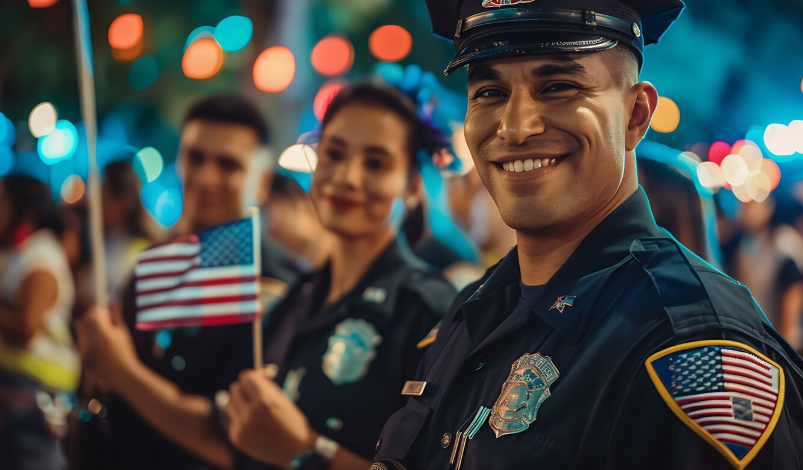Florida, home to nearly 22 million people, is one of the most dynamic states in the United States in terms of public safety and law enforcement. From bustling cities like Miami and Orlando to rural areas and coastal communities, the need for well-trained law enforcement and corrections officers is constant.
The Growing Popularity
As more candidates pursue criminal justice careers in Florida, there is rising demand for FBAT preparation resources, especially free FBAT practice test.
Why Practice Tests Are So Popular
- Affordability: Entry-level candidates often have limited budgets. Free test prep tools help remove financial barriers.
- Realistic Preparation: Practice tests mirror the format, timing, and style of the official exam, helping candidates feel more confident.
- Identifying Weaknesses: Practice questions can reveal subject areas needing improvement, allowing for targeted study.
- Boosting Test Performance: Familiarity with test content and structure leads to better scores and less anxiety.
The Foundation of Public Safety: Florida’s Criminal Justice System
Florida’s law enforcement and corrections system is administered and standardized by the Florida Department of Law Enforcement. FDLE, through the Criminal Justice Standards and Training Commission, ensures that officers entering the field meet consistent statewide qualifications.
There are two primary tracks for individuals looking to serve in Florida’s criminal justice system:
- Law Enforcement Officer (Police Officer, Deputy Sheriff, State Trooper)
- Correctional Officer (Jail or Prison Officer)
Both career tracks are built upon structured training programs that combine classroom instruction, physical fitness development, ethical education, and practical simulations.
Minimum Qualifications to Enter Training in Florida
Before being accepted into any law enforcement or corrections academy, candidates must meet a series of legal and physical requirements, including:
- Be at least 19 years old for law enforcement or corrections.
- Be a U.S. citizen.
- Possess a high school diploma or GED.
- Have no felony convictions or disqualifying misdemeanors.
- Pass a background check, medical evaluation, physical abilities test, and the FBAT.
Of these steps, the Florida Basic Abilities Test stands out as a vital early benchmark of academic and cognitive readiness.
Why the FBAT Matters
.
The FBAT plays a pivotal role in the law enforcement and corrections career pipeline for several reasons:
- Academy Eligibility
Without passing the FBAT, applicants cannot begin their training. It acts as a gatekeeper, ensuring candidates possess the baseline mental skills needed to handle classroom instruction and fieldwork.
- Job Readiness
Law enforcement and corrections officers must process information quickly and make decisions under pressure. The FBAT assesses whether a candidate is mentally equipped to handle such demands.
- Reduces Attrition
By filtering candidates early, the FBAT reduces dropout rates from academy programs, saving time and public resources.
- Statewide Consistency
Because it is standardized across Florida, the FBAT helps ensure that all incoming officers—regardless of agency or location—meet the same foundational qualifications.
Overview of Law Enforcement Training in Florida
Once a candidate passes the FBAT and meets all other minimum qualifications, they may enroll in a law enforcement academy, which is typically offered through technical colleges or community colleges.
Curriculum Overview
Florida’s Basic Law Enforcement Training Program typically involves 770 to 880 hours of instruction and covers:
- Criminal Law and Constitutional Law
- Patrol Techniques
- Investigations
- Traffic Stops and DUI Enforcement
- First Aid and CPR
- Defensive Tactics
- Firearms Training
- Physical Fitness
- Ethical Decision Making
Hands-On Training
Cadets undergo simulations such as:
- Arrest scenarios
- Vehicle pursuits
- Domestic violence calls
- Use-of-force decision-making
These simulations help bridge the gap between classroom knowledge and real-world application.
Corrections Training in Florida
For those pursuing a career in corrections (jail or prison settings), a similar process is followed, with training tailored to the correctional environment.
Corrections Academy Topics
- Inmate Supervision
- Contraband Detection
- Report Writing
- Ethics and Professionalism
- Defensive Tactics
- Firearms Training
- Facility Safety and Security
The Basic Corrections Recruit Training Program lasts around 420 to 520 hours and places emphasis on discipline, communication, and inmate control.
The Role of Ethics and Community Trust
Training in both law enforcement and corrections goes beyond physical skills and laws. Officers are taught about the significance of:
- Cultural sensitivity
- De-escalation techniques
- Use of discretion
- Maintaining integrity and professionalism
Trust between officers and the public is built through responsible, ethical behavior. Florida’s training programs prioritize these values to ensure officers become not only enforcers of law, but protectors and leaders in their communities.
Conclusion: Why Preparation Matters
A career in law enforcement or corrections is not for the faint of heart. It demands resilience, sharp thinking, and a commitment to justice. Florida offers some of the most comprehensive training pathways in the nation, and it starts with passing the Florida Basic Abilities Test (FBAT).



